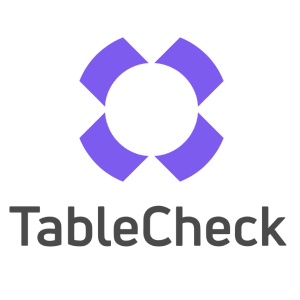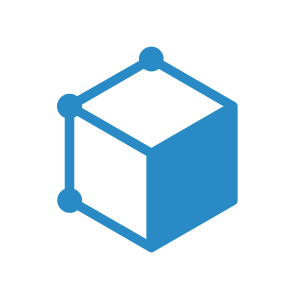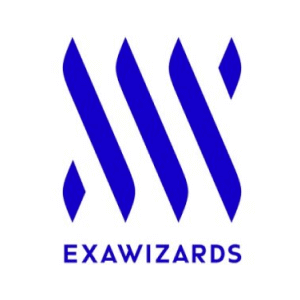Updated February 16, 2024
FAANG Companies in Japan
The tech world is an ever-growing, ever-changing jungle. With so many new businesses popping up every day and even more of them silently failing, it’s safe to say that it’s an unpredictable market.
But of course, there are some exceptions. There are a few household names that have managed to become “the one” in their respective industries, and today, we’ll take a look at these companies.
I’m talking about the companies that make up the acronym “FAANG”, of course. In this post, I’ll tell you all about what FAANG companies are and where the name originated from.
You’ll also learn about the Japanese branches/offices of FAANG companies and what the job interview processes are like.
Without further ado, let’s jump in.
What Are FAANG Companies?
FAANG is an acronym that represents the biggest tech companies in the world, namely Facebook, Apple, Amazon, Netflix, and Google.
However, this isn’t a set-in-stone description. The term is very flexible and is often modified to fit the context, but the point is mostly similar.
Sometimes, it’s simply a “FANG”, where the “A” symbolizes either Apple or Amazon, and sometimes Microsoft is thrown in there instead of Netflix, making it “FAAMG”. It all depends on the context.
You may be asking why Microsoft is only “sometimes” included. The answer to this has a lot to do with how the term originated, so let’s take a closer look.
How Did The Term “FAANG” Originate?
Although nowadays it’s often used to describe the biggest tech companies with the best working conditions/highest salaries, the term was originally a stock market term. It was a way to describe the tech stocks that had the best performance in the U.S. stock market.
You may have realized that this is a slightly outdated term. Of course, Facebook is no longer called “Facebook” and instead chooses to go by “Meta,” and Google’s official corporate name is actually “Alphabet,” but you get the idea.
If you’re from Japan, you may be unfamiliar with the term “FAANG companies.” This is because there’s a different acronym being used instead, which is GAFA. This originated from a 2019 book titled “The Four: The Hidden DNA of Amazon, Apple, Facebook, and Google.”
Despite the acronym on the English book cover spelling out AAFG, the Japanese version of the book is titled “The Four GAFA”. Upon the book's wild success in Japan, people began referring to these companies as “GAFA” or “GAFAM,” if you include Microsoft.
Speaking of Microsoft, there’s a reason why the company is often left out when mentioning FAANG companies. Microsoft has always had a different position than the rest of the FAANG companies, and it was established long before the others.
Apple is the exception, of course. Even though it was established only one year later than Microsoft, the two companies were in different positions when the acronym first came about.
When the term FAANG started to gain popularity, the stocks of these 5 companies were the best performers on the market. Microsoft, on the hand, was having a recession-era with its stocks.
Microsoft was also largely considered a “business to business” company, unlike the others that sold products directly to consumers.
Nowadays, there aren’t any reasons to not include Microsoft in the acronym anymore, other than the inconvenience of having to add an “M” to an abbreviation that’s already established.
Which FAANG Companies Have Offices in Japan?

Working at a large-scale tech company such as the ones I mentioned above is a dream for almost every developer. These companies pay well, offer great benefits, and the offices are pretty fancy.
Coincidentally, living in Japan is also a dream for many. The rich culture, good food, and polite people are as tempting as the beauty of its nature. So you might be wondering if it’s possible to combine these two dreams.
Well, I’m here to tell you that it is. FAANG companies might be U.S.-based companies, but luckily, they all have offices in Japan. Even Microsoft, which isn’t one of the original FAANG companies, has an office here, and all of these offices are in Tokyo.
Yet, it’s not for certain whether working at these Silicon Valley companies in Japan is truly a dream or not. Let’s take a closer look at each one, and see what the fuss is about.
The tech giant Google’s Japan HQ is located in Tokyo. The company has a beautiful office space in Shibuya (they were in Mori Tower, Roppingo before that).
Google’s Japan office has managed to maintain the same company culture it has cultivated in the United States. This means that working at Google in Japan will be pretty similar to the experience you’d have in the States.
This may come as a relief if you’re a foreigner, as surviving in a workplace with Japanese culture can be a real challenge. We wrote about some of these challenges in detail previously: the tricky parts of navigating the Japanese workplace.
One of the biggest companies in the world, Google usually has plenty of job openings. Their Tokyo office hires from all over the world, which makes for a diverse and multicultural environment
The departments in Japan work on products such as Google Maps, Google Cloud Platforms, and Google Chrome. Some companies have severely limited development teams in Tokyo, but Google is an exception. There’s plenty of major development happening in Tokyo, and they hire lots of highly-skilled engineers.
The salaries at Google are also top-tier for Japan. You may not earn quite as much as you would in Silicon Valley, but the comp packages are still quite generous. If you’re wondering about other companies’ salaries, I recently updated my guide on software developer salaries in Japan which you can check out.
Amazon
Amazon is a company that started out as an online bookstore and is now the biggest web service provider and online retailer in the world.
Their main office in Tokyo is located right in Meguro. The work culture at Amazon is highly international, and many of the employees are foreigners, as detailed in this entry by an ex-Amazon Japan employee.
As for salaries, they also pay very well for Japan. The author of the above post even says it’s enough for two people to live comfortably.
Many people at Amazon Japan work on Amazon Web Services, but there are job openings in other departments as well. They do lots of development from Japan.
Apple
Apple is another big player in the tech world, and the company has multiple offices in Japan. We’ll focus on the one in Tokyo, as other locations are more corporate-oriented.
Sadly, Apple doesn’t hire as frequently as Google or Amazon in Japan. Also, they don’t work on as much software here. In Japan, Apple mostly hires for “build engineers” and more hardware-focused roles.
As for the culture, it seems that Apple’s Japanese offices are a little more “domestic” than places like Google and Amazon. They aren’t quite as English-friendly, so Apple Japan doesn’t give off the “international” vibe as much as the others on this list.
Netflix
Netflix is one of the younger companies on this list, but it’s a tech giant nonetheless.
Located on Roppongi Hills, Netflix’s Japan office was established in 2015. It’s a pretty big office, but most of it is comprised of departments like marketing, business development, and communications.
Netflix Japan doesn’t hire engineers as often as Google or Amazon, as it’s similar to Apple in terms of resembling a more domestic company.
However, they do occasionally open tech positions. Usually these roles require high levels of experience and Japanese skills, but it can be a good option for people who fulfill these criteria.
An important thing to mention here is that Netflix Japan is very strict on its language requirements. Most of the time, being bilingual is a requirement.
Microsoft
The tech giant Microsoft also has a major presence in Tokyo.
One great thing about Microsoft is that they have a “no overtime” policy, which is a testament to how much they care about their employees. Overall, it’s a pretty relaxed work environment, and the company pays well too. They also tried out a 4-day work week experiment.
Unfortunately, despite the giant scope of the company, Microsoft hires less frequently than Google or Amazon. Still, the company has a few software teams working in Tokyo.
Some positions require Japanese skills, so language requirements may be a problem if you’re looking to get hired at Microsoft Japan. However, we hear they have a fairly relaxed environment, and a mix of both English and Japanese spoken in the office.
Microsoft's salaries are pretty good compared to market standards, but might not reach the levels of companies like Google.
Meta (Facebook)
Meta (AKA Facebook) also has an office in Tokyo, in Toranomon Hills. However, most of the operations at this office are non-software related. The office is mostly focused on sales and other non-technical areas of the company.
Unfortunately, there aren’t many developers working on Facebook or on Meta’s other endeavors, like the Quest VR, at this location. We hear there are a few developers working on Instagram, so the company does have a small software development team in Tokyo.
Additionally, working at Facebook in Japan is not easy to achieve. Since the team is quite small, the department rarely hires new people.
While getting a job is harder due to fewer spots available, the compensation and benefits are top-tier.
Job Interviews at FAANG Companies in Japan

As it’s a dream for many software developers to get a job at a FAANG company, the interview process is often a topic of curiosity, even more so than the salary and the benefits.
Luckily, almost all of the FAANG companies follow a similar interview process. I’ll detail the steps below, which include interviews, calls, and trial tasks.
If you want to learn more about the interviews and the job application processes in Japan, head to my blog post, where I share some helpful interview tips to land your dream job in Japan.
No matter where you apply, it’s always a good idea to research the company you’re applying for. Familiarizing yourself with the tools and languages is also a great way to ensure a smooth interview process.
Here’s how the interview will generally go.
The Interview Process
The process for FAANG companies in Japan is typically similar to the process in Silicon Valley and other locations.
The whole process usually starts with a call from a recruiter. This is a preliminary interview where you’ll be asked to talk about yourself and the sort of work you’re interested in.
Following the call, you might have an online coding test. This usually takes about 1-2 hours depending on the difficulty. Usually, most FAANG companies give 2 tasks to be solved during this period. One task will likely be on programming, while the other one will be about system design.
After successfully passing the test, you’ll have the “phone screen”interview. This is another coding interview, but this time you’ll have to verbally explain your reasoning, and it usually takes close to an hour.
During this interview, you’ll be asked two questions similar to the tasks above, but you’ll have to explain your detailed solution, why you chose a particular method, and describe the algorithm you’ll use. You’ll finish the interview by writing your code.
It’s best to prepare your data structures and algorithms knowledge for this interview.
If you’re considering applying to Amazon, keep in mind that they’ll also take about 20 minutes to ask a few questions and test your soft skills. If this is the case, you can use the STAR method (situation, task, action, and result) to explain your soft skills from your past projects.
Assuming everything went well until this point, the last step of the interview process is the face-to-face interview. This is a whole process, you’ll probably spend the whole day at the company offices.
The on-site step includes 3-4 interviews with a lunch break in the middle. During the lunch break, you’ll be accompanied by a company employee. Feel free to ask your questions during this time.
The in-person interviews are structured similarly to the phone interview. It will mostly be about getting to know you. After the long day of interviews, the process will be over, and you’ll be informed that day or at a later date on whether you got the job or not.
Are There Any Japanese FAANG Companies?

The short answer? No.
There’s no Japanese equivalent of the US “FAANG” companies.
Japan’s IT industry may be growing, but FAANG companies are a completely different beast. The biggest Internet-focused tech companies in Japan tend to have market caps in the tens of billions of dollars.
Whereas FAANG companies are worth trillions.
However, as I explained in a recent post, Japan is a country of startups, and many companies have shown significant growth in the last decade. Some even managed to become “unicorns,” an unofficial title for startups that reach a value of 1 million USD without going public.
Here is a short list of some top tech companies in Japan that are the closest to FAANG standards
Woven Planet: A subsidiary of Toyota, develops software for mobility.
Mercari: The first unicorn of Japan. The app, the largest C2C marketplace in Japan, allows people to sell their used items.
Rakuten: An e-commerce and online retailing company.
SmartNews: Another unicorn of Japan, an AI-powered news app.
Conclusion
I want to end today’s post with a few of my own suggestions if you’re considering applying for FAANG companies.
First of all, I recommend you work on your data structures and algorithms skills. You can use a site like Leetcode to work on coding challenges similar to the ones you’ll get from FAANG companies.
Secondly, don’t forget that while you’re being interviewed, you’re interviewing your future employer too. This is true for all interviews, but it’s always good to keep in mind.
Don’t forget to ask questions. In fact, prepare for it. You can ask questions to your potential superiors. Asking about the company's inner workings is also a good idea.
Remember to explain your thought process and reasoning well when you’re solving tasks during the interview process. Even if you get the answer wrong, your critical thinking might put you in a better light.
Lastly, if you want a good book to practice for your interview tasks, Cracking the Code by Gayle Laakmann Mcdowell is an excellent book that many software developers swear by, and it features 189 questions along with their solutions.
If you’re specifically looking for a job as a developer in Japan, I also recommend reading my other blog post where I explained how to get a job as a software developer in Japan.
Get Job Alerts
Sign up for our newsletter to get hand-picked tech jobs in Japan – straight to your inbox.







